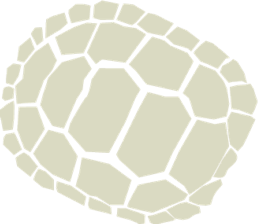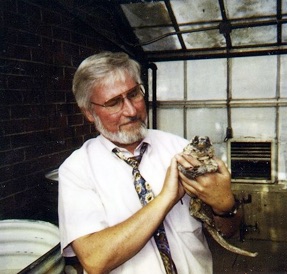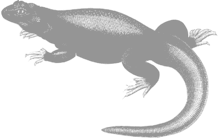Our research interests and experience are broad and include descriptive ecology, ethology, organismal biology, population biology, evolutionary biology, biophysical ecology, theoretical ecology, and conservation biology.

Research
-
•Relationships with, and evolutionary adaptations to, limiting and/or influential factors of the environment. We are interested in the physics of interaction, the physiological and behavioral adaptations to interactions, and the ecological and evolutionary significance of such adaptations as well as the mechanistic function of the adaptations and the conservation consequences of organism-environment interactions.
-
•Time and space utilization, sharing and interrelationships among animals. The ecological importance of Grinnellian Niches in organisms, and the autecological function of these niche relationships in determining distribution, dispersion, dispersal, and population fluctuations. Interrelationships of competitive, predational, and physical environmental influences on the structure of animal populations and communities.
-
•Ecology and conservation of reptilian herbivores
-
•Design of organisms
-
•Paleobiology and extinction processes
-
•Desert biology, ecology, and conservation
-
•Conservation biology
-
•Conservation planning and injecting science into policy
General Areas of Research
Epidemiology of Desert Tortoise
In order to understand the dynamics of upper respiratory tract disease (URTD) in the desert tortoise (Gopherus agassizii), we are studying various parameters of innate and adaptive immunity of tortoises in the laboratory and the field. A bacterium, Mycoplasma agassizii, in known to be one causative agent of URTD, and tests to assess tortoise antibodies to M. agassizii are currently being used to make management decisions when dealing with the translocation of displaced wild tortoises in NV, CA, and UT. We (including collaborators in the department of microbiology in the medical schoool at UNR) have developed assays to increase the accuracy with which URTD can be diagnosed in tortoises. As part of this project, we are also characterizing parameters of the tortoise immune system, such as levels and types of antibodies produced, the effect of season and gender on antibody production, and the effect of stress and/or reproductive hormones on lymphocyte proliferation. We are assessing the prevalence of URTD as well as differences in tortoise immune responses to M. agassizii across the range of Mojave desert tortoise populations. In addition, we are studying the transmission parameters of URTD and assessing the interaction of disease and hormone levels (including corticostrone and testosterone) from a controlled, semi-natural experiment conducted on 275 captive tortoises at the Desert Tortoise Conservation Center in Clark Co., NV.
Current Research Topics
Conservation and ecological genetics of reptiles and amphibians
Our lab group is involved in a variety of projects that use genetics as a tool to answer ecological questions and solve conservation problems. Most of our projects focus on species of concern in the western United States. We are interested in the identification of population structure, population dynamics, and phylogeography. Further, we use these kinds of data, and many modeling analyses to tackle conservation problems such as population viability, dependence upon metapopulation structure for persistence, influence of habitat fragmentation on population persistence, and effectiveness of management actions including the identifying distinct population segments and conservation units, genetics management plans, translocation, and head starting. Currently, we have projects for the Mojave desert tortoise (Gopherus agassizii) and the pathogenic Mycoplasma that infects desert tortoise to cause the upper respiratory disease in this species, and we are studying western toads in Great Basin; however, there are multiple species that are of interest to us.


Physiological Ecology and Climate Change
Our lab has a rich tradition of studying physiological and biophysical ecology of animals. We have been using laboratory and field approaches to understand how homeostatic mechanisms constrain and open opportunities for species in natural environments and in environments undergoing climate change. We have collaborative projects in Australia where we study water balance in frogs, and we have parallel projects in the US. We are extending old projects on the ecology of chuckwallas to create a model of how to use physiological ecology to assertain vulnerability of populations to climate change.


Dick Tracy








